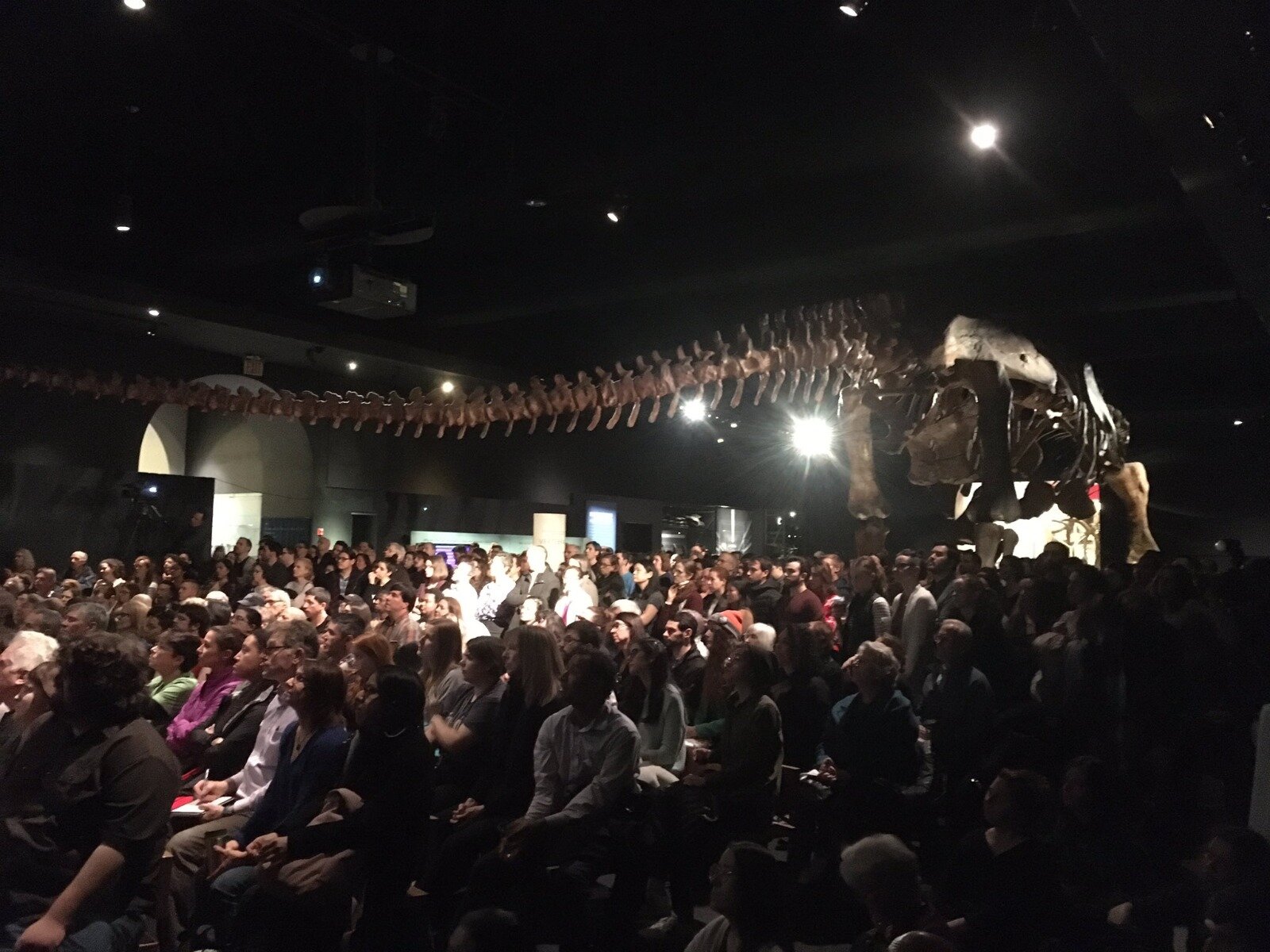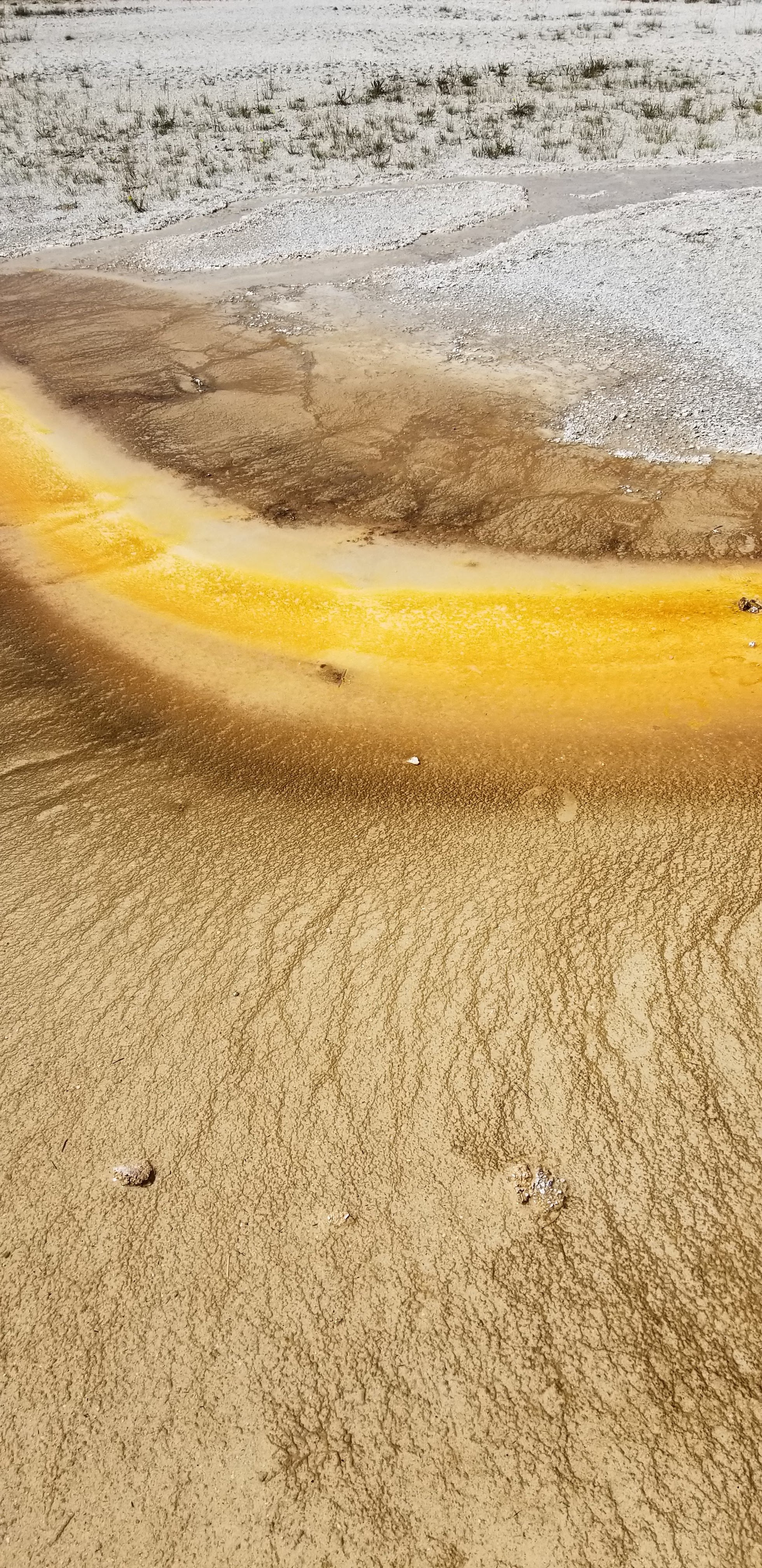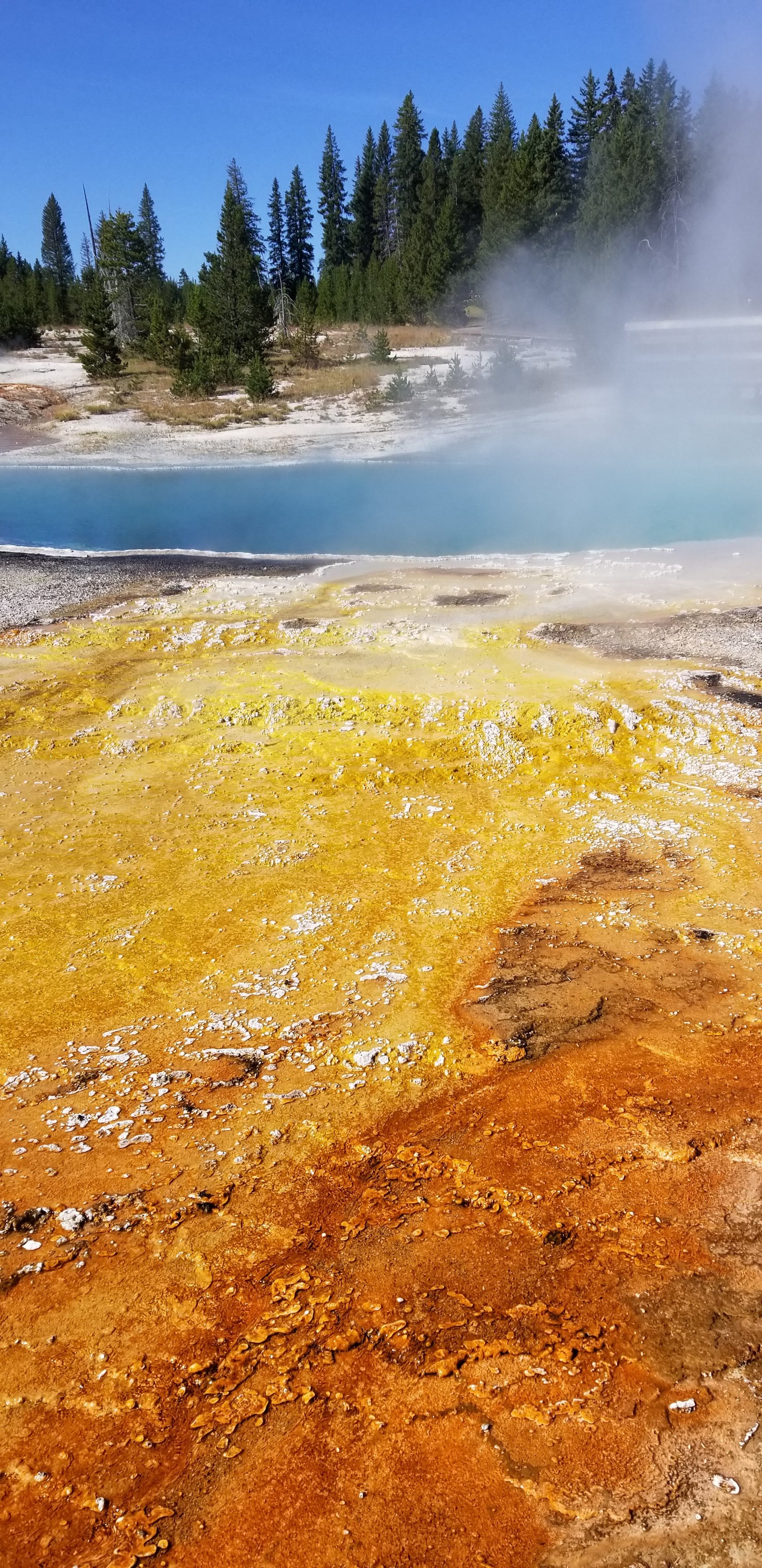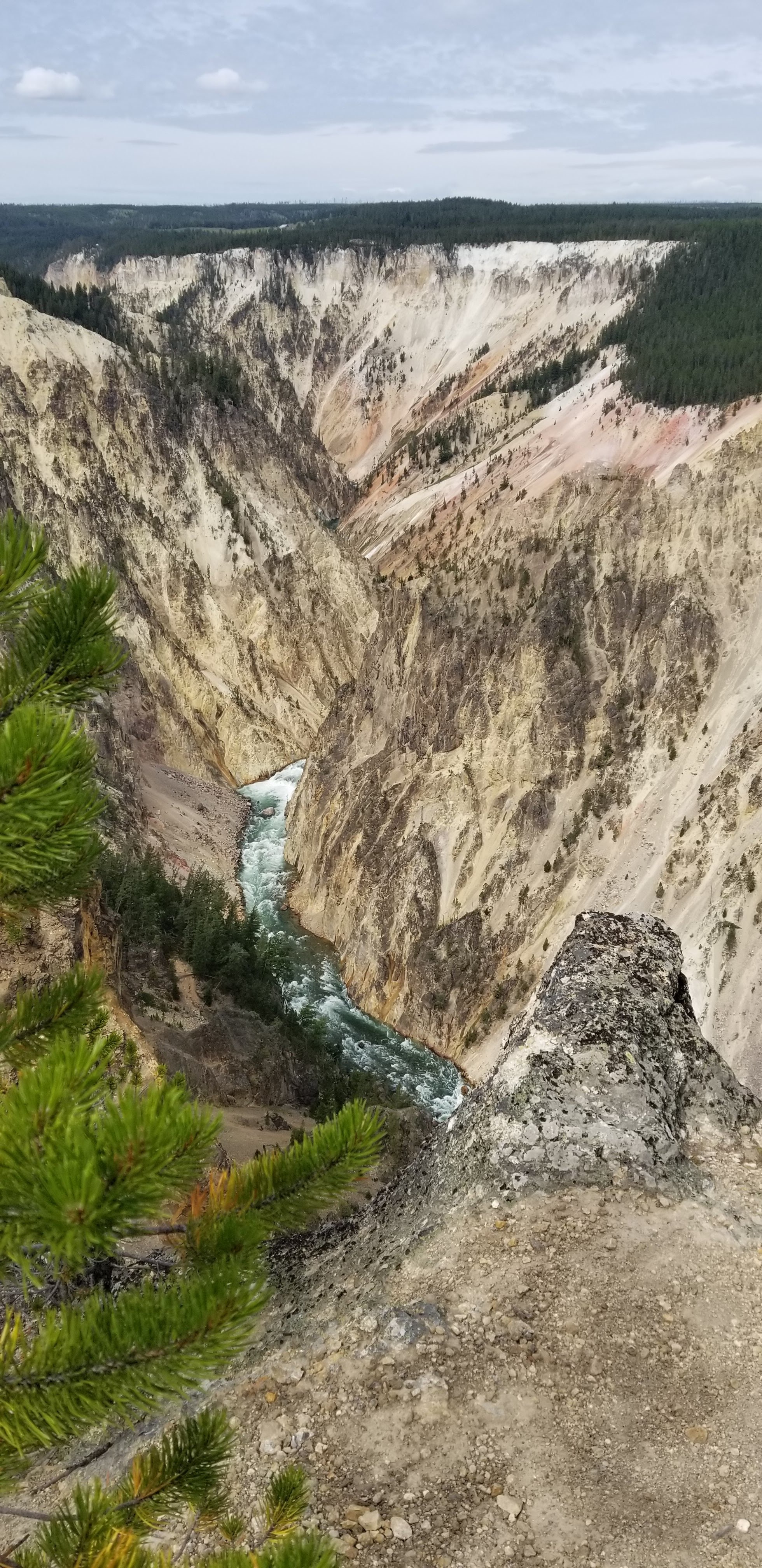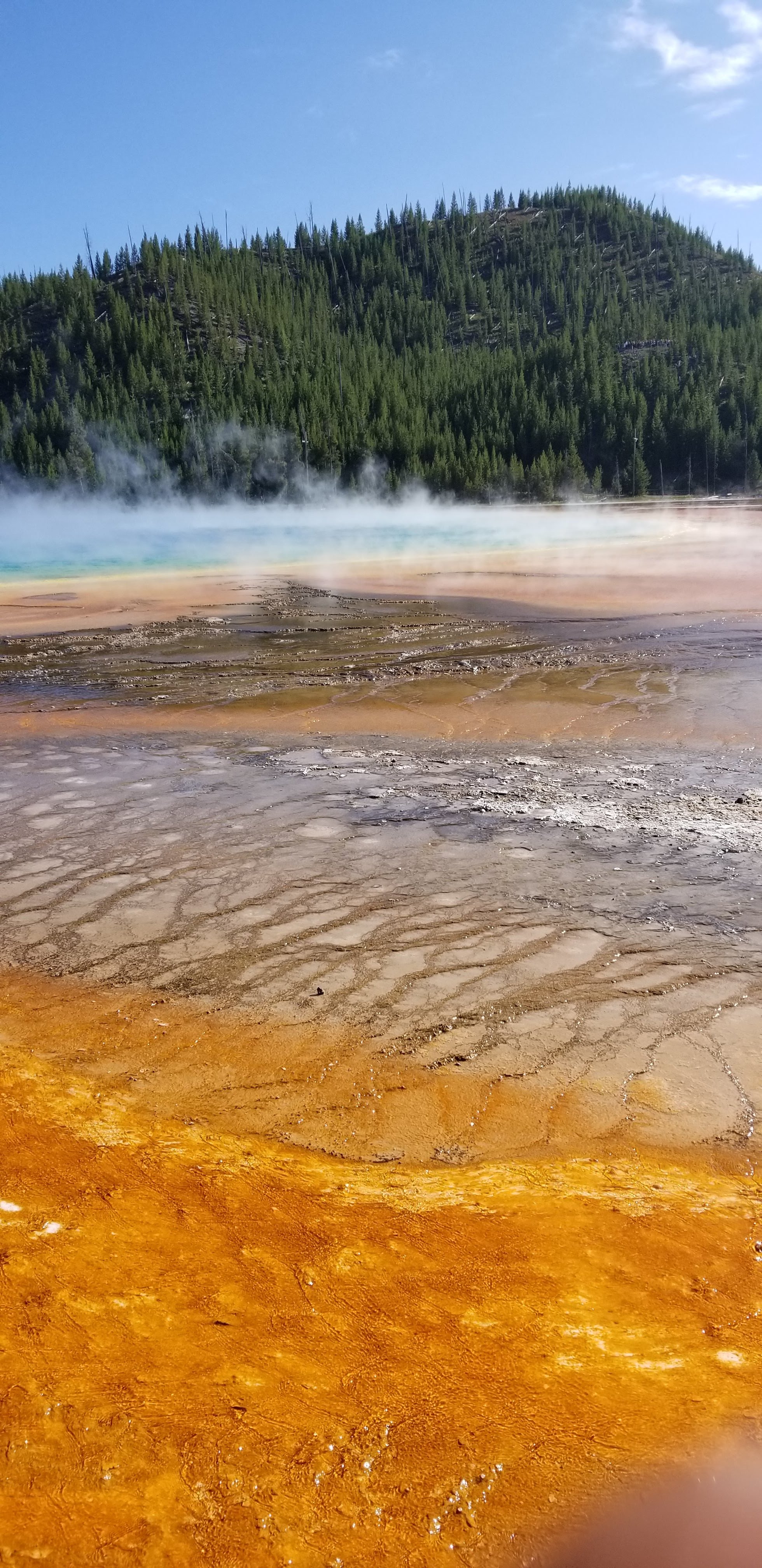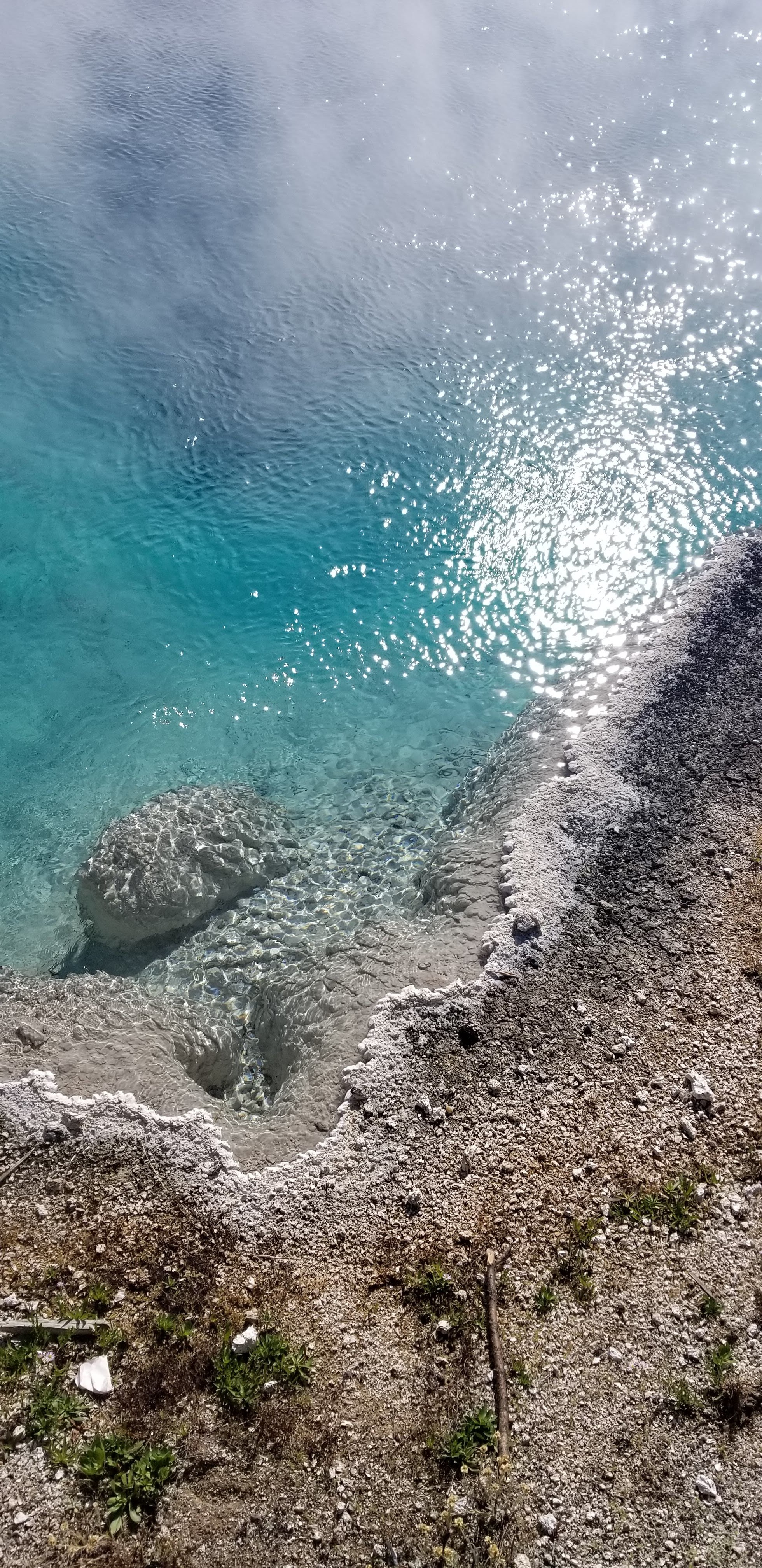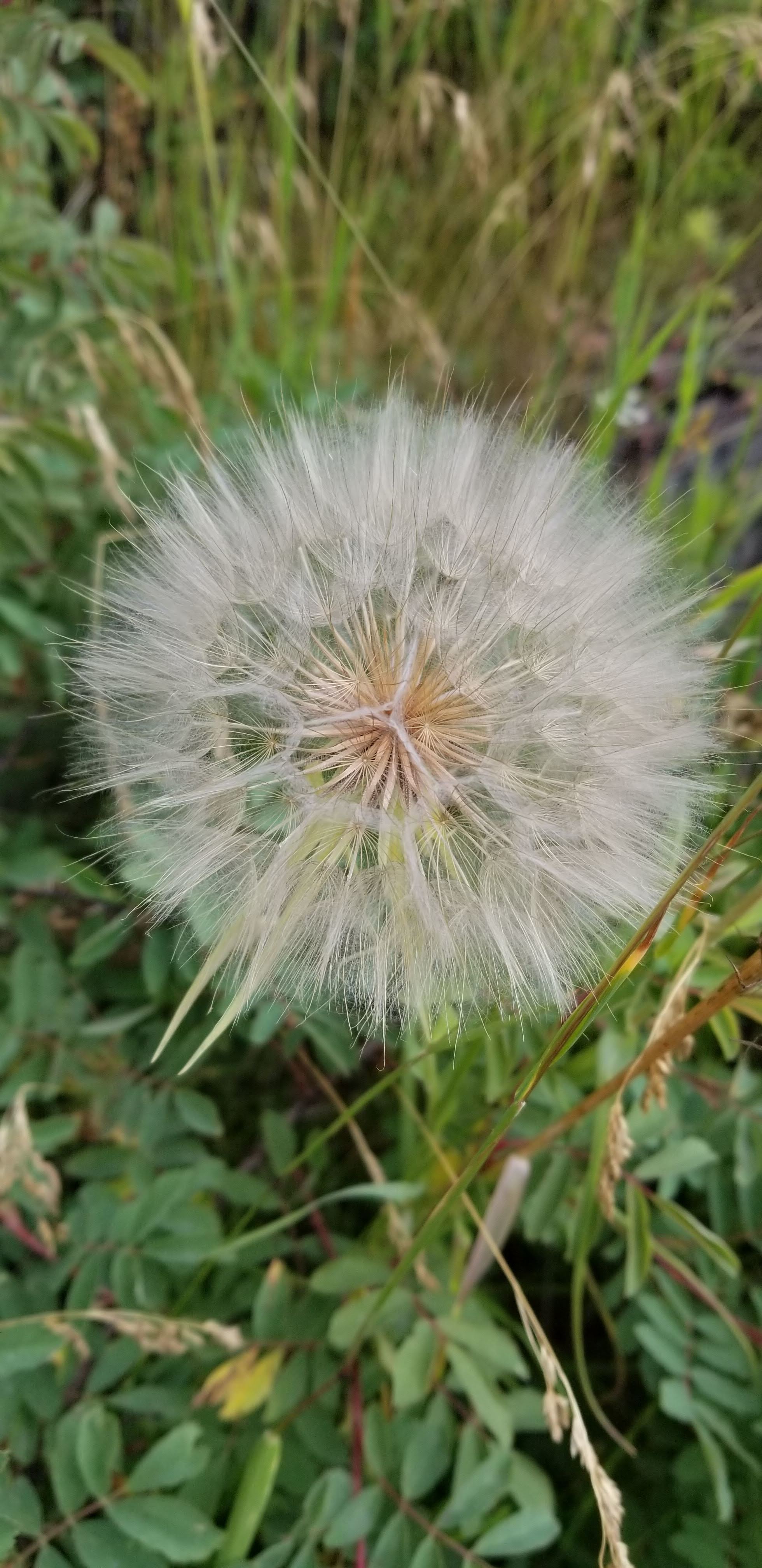Shahzeen joined Sarah Mincey (Director, Integrated Program in the Environment), Janet McCabe (Director of the IU Prepared for Environmental Change), Vernice Riego (High school student and climate activist) and Steven Chybowski (Fellow in City of Fishers, IN) to discuss climate policy and energy transitions for the state of Indiana.
New paper in PNAS - Shared vision for a decarbonized future
Out today:
Shared vision for a decarbonized future energy system in the United States
How do people envision the future energy system in the United States with respect to using fossil fuels, renewable energy, and nuclear energy? Are there shared policy pathways of achieving a decarbonized energy system? Here, we present results of an online survey (n = 2,429) designed to understand public perceptions of the current and future energy mixes in the United States (i.e., energy sources used for electric power, transportation, industrial, commercial, and residential sectors). We investigate support for decarbonization policies and anti-decarbonization policies and the relative importance of climate change as an issue. Surprisingly, we find bipartisan support for a decarbonized energy future. Although there is a shared vision for decarbonization, there are strong partisan differences regarding the policy pathways for getting there. On average, our participants think that climate change is not the most important problem facing the United States today, but they do view climate change as an important issue for the world today and for the United States and the world in the future.
Congrats to Deidra and Joe!
Joe presents at O'Neill's Environmental Policy Seminar
Research Associate Joe Kantenbacher presents our new research that asks what gives Gen Z hope, despair, inspiration? What awaits in the best, likely, and worst possible futures in 2050 and 2100? Stay tuned.
This work is a collaboration with Nathan Gieger and Landon Yoder and funded by the Environmental Resilience Institute.
Deidra presents research at IU
Photo by James Boyd
PhD student Deidra Miniard presents research at the Association of O’Neill Ph.D. Students 20th Annual Conference at Indiana University. She discussed our new research that explores how conservatives and liberals think about decarbonizing our energy system and some of her new research on what Indiana residents think about climate change.
Congrats, Deidra!
Joe accepts a position at University of South Dakota
Huge congratulations to our postdoc Joe Kantenbacher who accepted a tenure track position at University of South Dakota in their Department of Sustainability & Environment.
Go, JOE!
Bringing social science and energy expertise to sustainability issues. Here is to the adventures ahead!
American Museum of Natural History
One of my **favorite** museums - the American Museum of Natural History in New York City - asked me to give a talk on Feb 5!!
I'll be talking about perceptions and motivations related to climate change.
Update: Here are some photos from the event. All with a Titanosaur measuring 122 feet in length (“The Titanosaur is so big that its head extends outside of its new home in the Museum's fourth-floor gallery. The Titanosaur lived in the forests of today's Patagonia about 100 to 95 million years ago, during the Late Cretaceous period, and is one of the largest dinosaurs ever discovered.”) Phenomenal event with about 500-600 people thirsty to learn about climate change and political change.
Lab alums Janine Tang and Daniel Lundberg..
Come by for an evening discussion of politics, best scifi, and life updates. Daniel is on the job market and is wonderful. Janine is finishing up her first semester in Law School. Also, so many Savannah snuggles!
Shaz becomes a U.S. citizen
I became a U.S. citizen yesterday after living in the U.S. for ~20 years.
It was an emotional ceremony in Indianapolis Indiana with about 90 new citizens representing 48 different countries. The judge presiding over the ceremony discussed how important immigration was to our country and how that is truly what makes America great.
The first thing I did as a citizen yesterday was register to vote. So here is to voting in 2020!
Lovely visit to UMass Amherst
Visited my wonderful colleague Ezra Markowitz at UMass Amherst in the Department of Environmental Conservation. I got to learn about biodiversity and species conservation from many of their faculty. I loved meeting some phenomenal students working on behavior, policy, and climate change.
Also discovered that Amherst was home of poet Emily Dickinson!
Hope for the Future Lies in the Multitude
Sierra Magazine’s current issue is about gender, equity, and climate. I am honored to have had a great discussion on climate change, consumption, and hope with these three pioneering women: Katharine Wilkinson (VP at Project Drawdown), Sherri Mitchell (Indigenous rights activist) and Juliet Schor (Sociologist at Boston College). Here is the video footage of our conversation.
A breath..
in an ocean of information.
(Blue sky in Louisville, KY, Oct 2019)
Congrats to Labber Deidra Miniard!
Deidra presented our work, “A shared vision for a decarbonized future” at the Annual conference for the Indiana Academy of Social Sciences in Valparaiso, Indiana.
Deidra won first place in the poster competition. Congratulations, Deidra!
New internal grant - From the Environmental Resilience Institute (ERI)
Motivating climate change solutions in Indiana
Environmental Resilience Institute, funded by Indiana University’s Prepared for Environmental Change Grand Challenge initiative (2019 – 2021) PI with co-PI Landon Yoder (SPEA, IU) and co-PI Nathan Geiger (The Media School, IU). Budget: ~$87,000.
New work explores why "turning off the lights" remains such a sticky heuristic
When participants are asked how best to save energy in the home, the most frequent response since the 1980s has been “turning off the lights”. Here, we use an online survey (N=1,418) to investigate why turning off the lights persists as a modal response despite decades of energy education promoting far more effective behaviors. We find that participants explain their choice of turning off lights or replacing bulbs with different heuristics. Participants who choose turning off the lights state that energy savings occur when an appliance is completely turned off. Alternatively, those who pick replacing inefficient light bulbs state that far less energy can be used for a given task.
Huge congratulations to co-authors Daniel Lundberg (SPEA Alum, now at Indiana Finance Authority) and Janine Tang (IU Law School).
New work: Ad hominem attacks or do-gooder derogation?
We find strong evidence for the negative effects of behavior-advocacy inconsistency for both neighbors and experts, albeit much larger impacts for experts. We also find highly sustainable advocates were not more influential than somewhat sustainable ones—instead they were marginally worse. Overall, these results suggest that advocates, especially experts, are most credible and influential when they adopt many sustainable behaviors in their day-to-day lives, so long as they are not seen as too extreme
New work: Simple interventions can correct misperceptions of home energy use
New paper in Nature Energy with Tyler Marghetis and David Landy. We test two simple interventions to improve perceptions and understanding of home appliance energy use.
Hello from Yellowstone National Park!
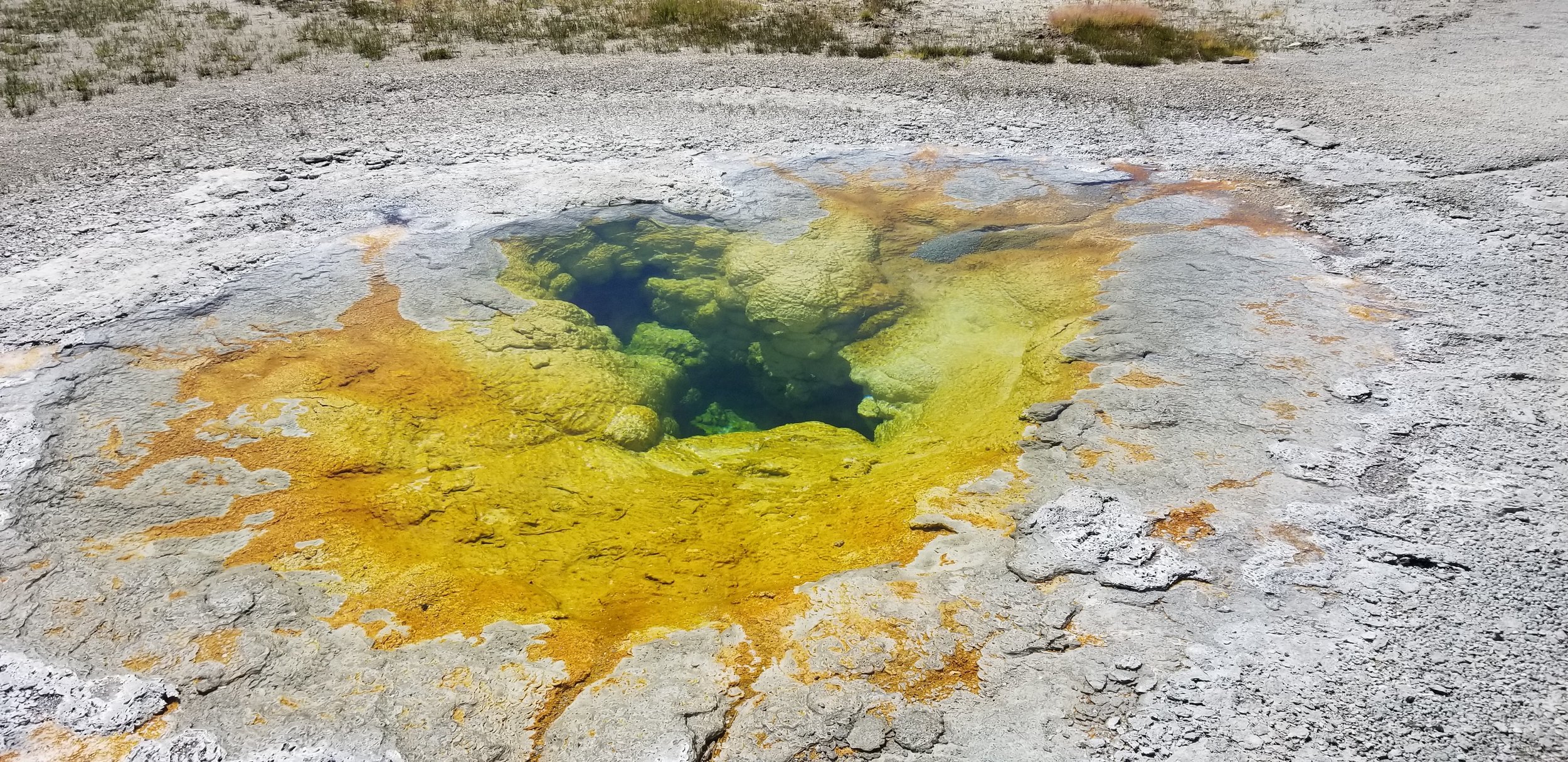
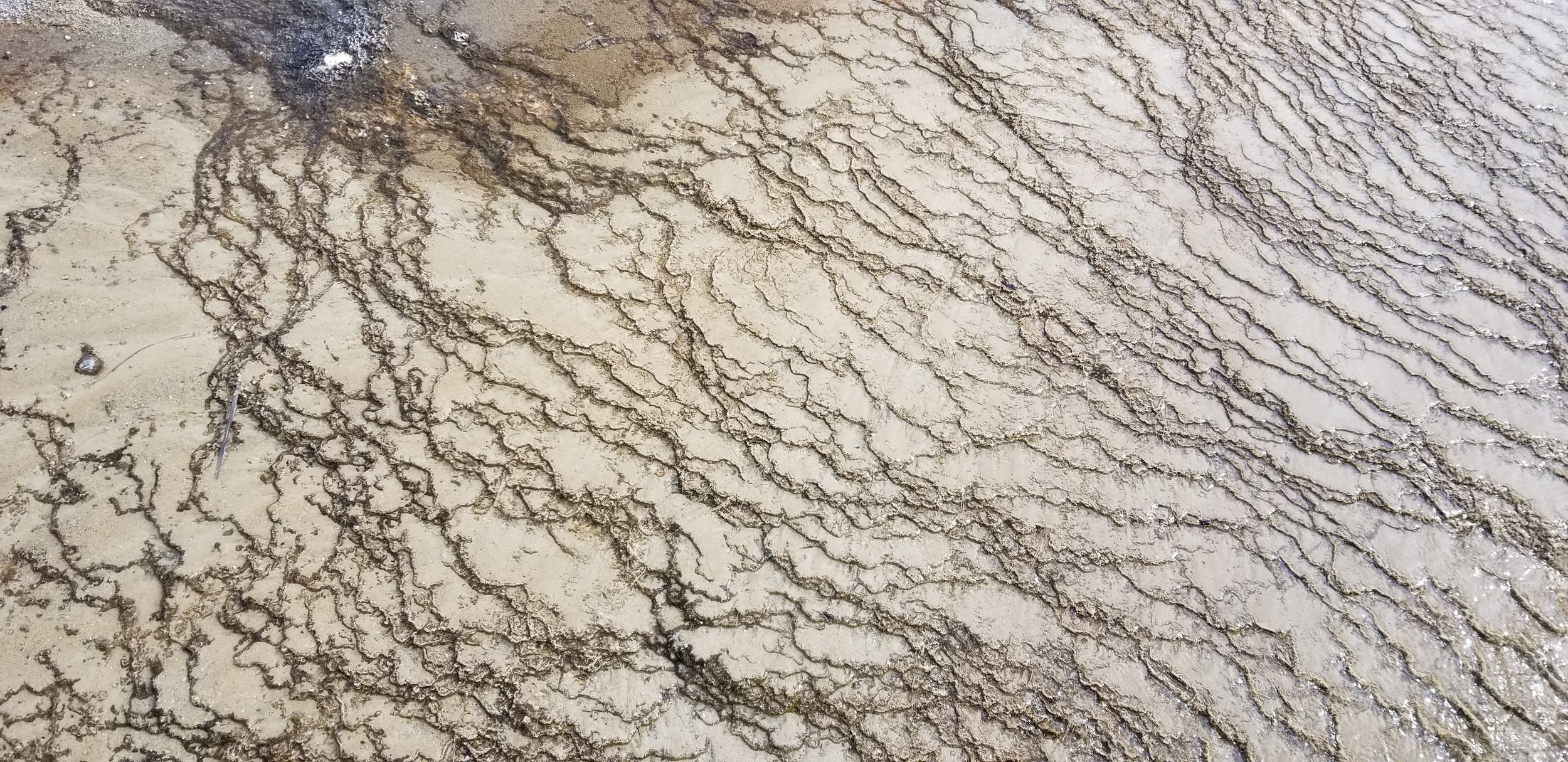
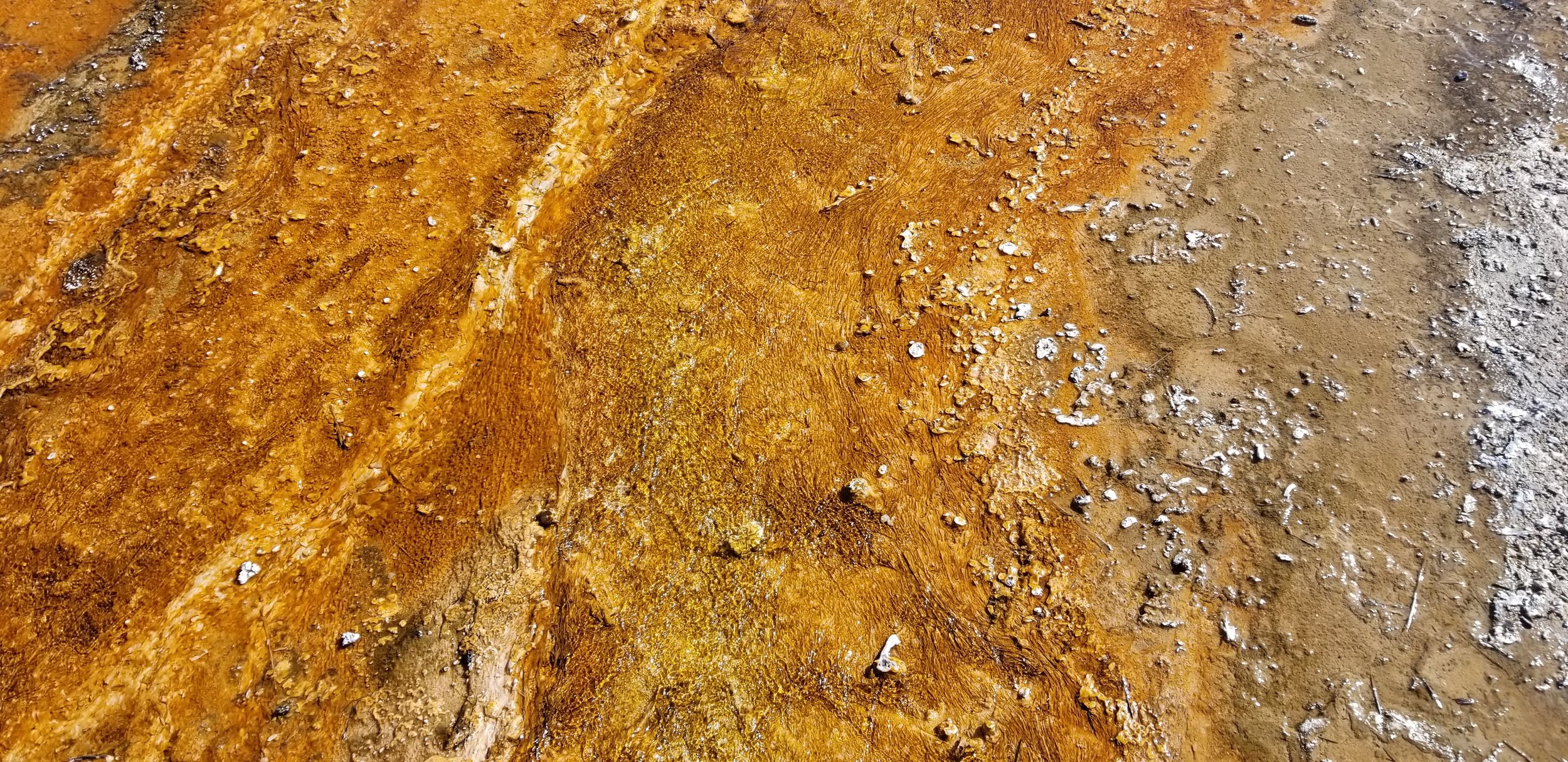
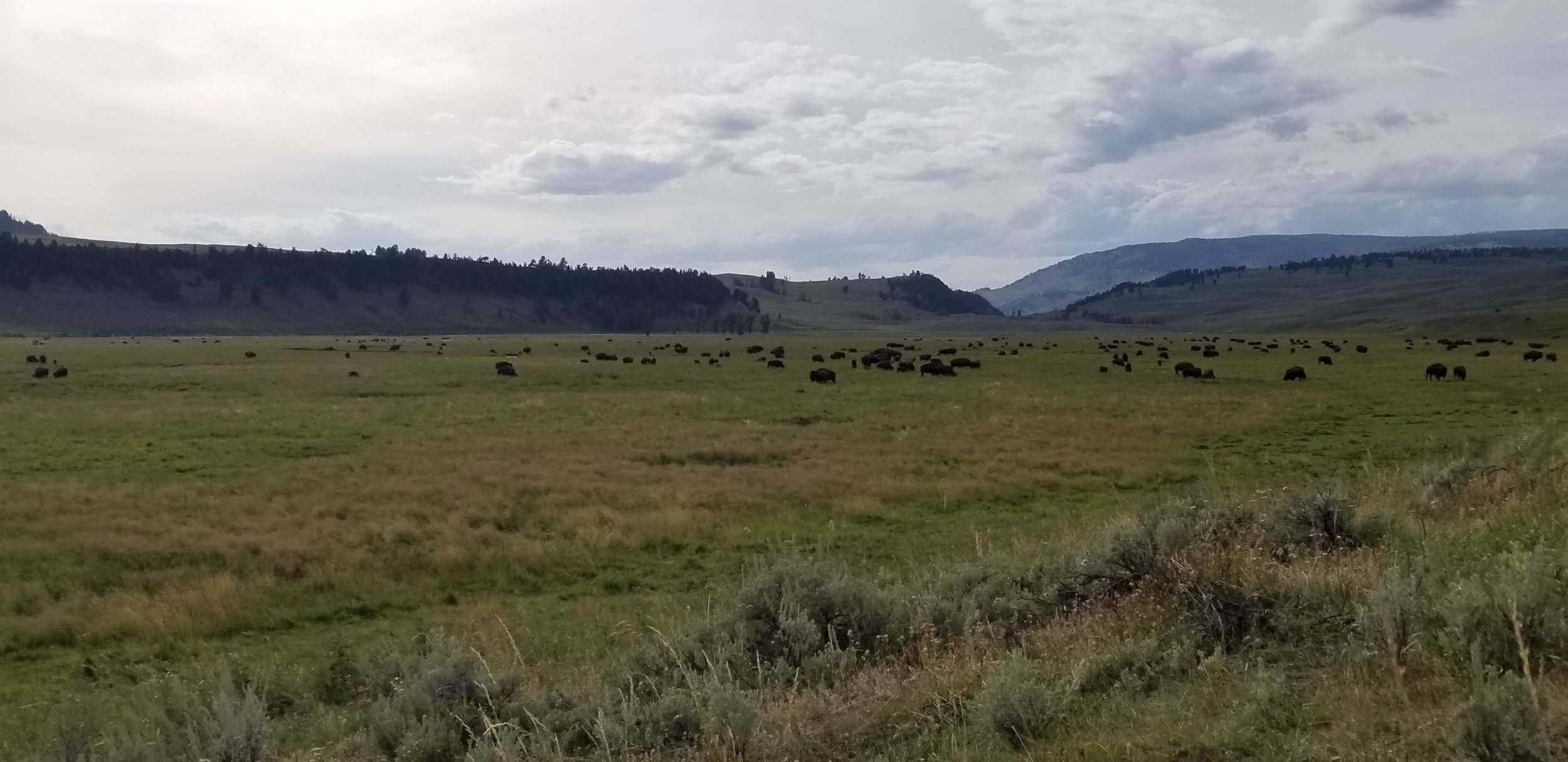
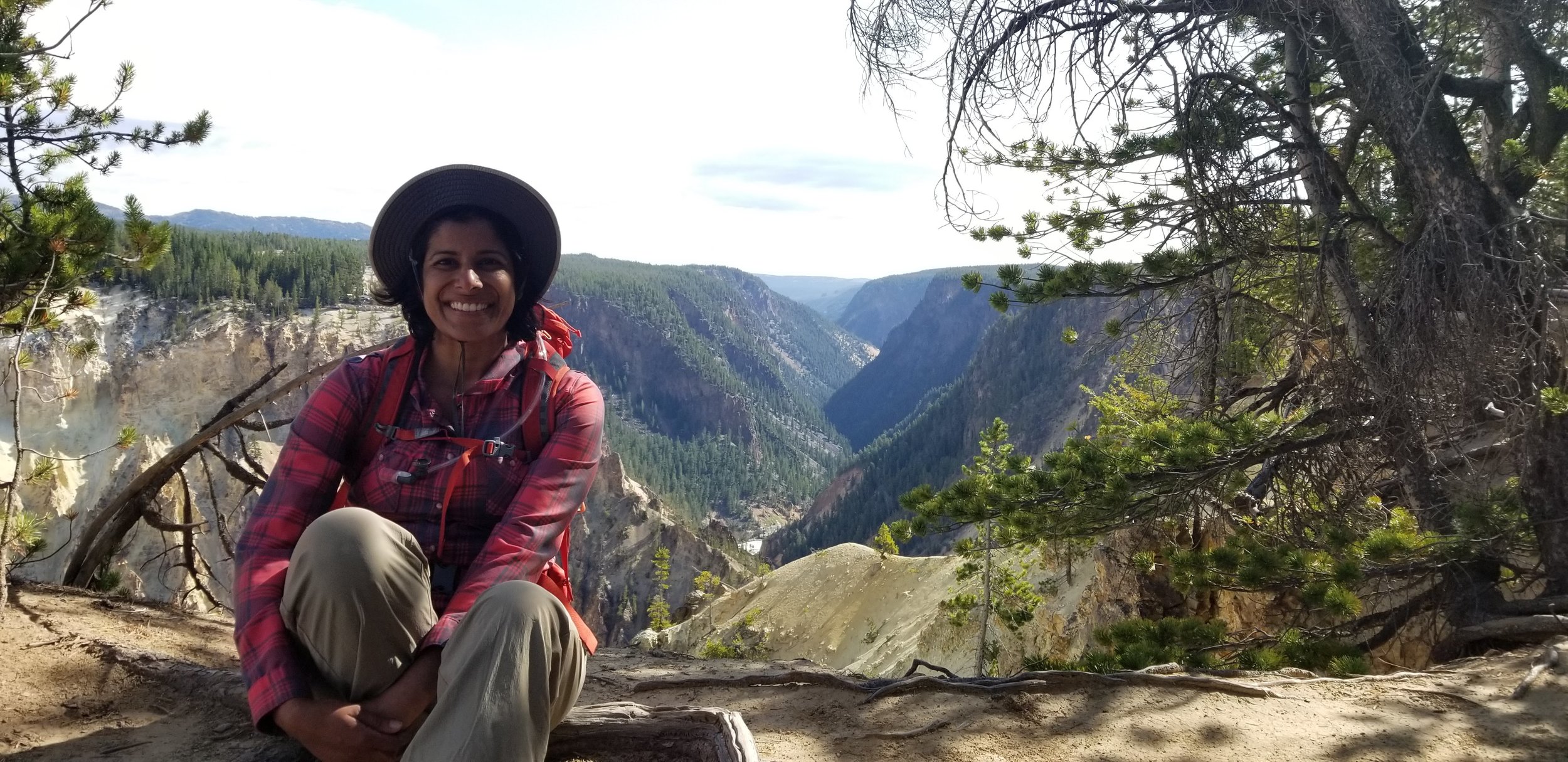
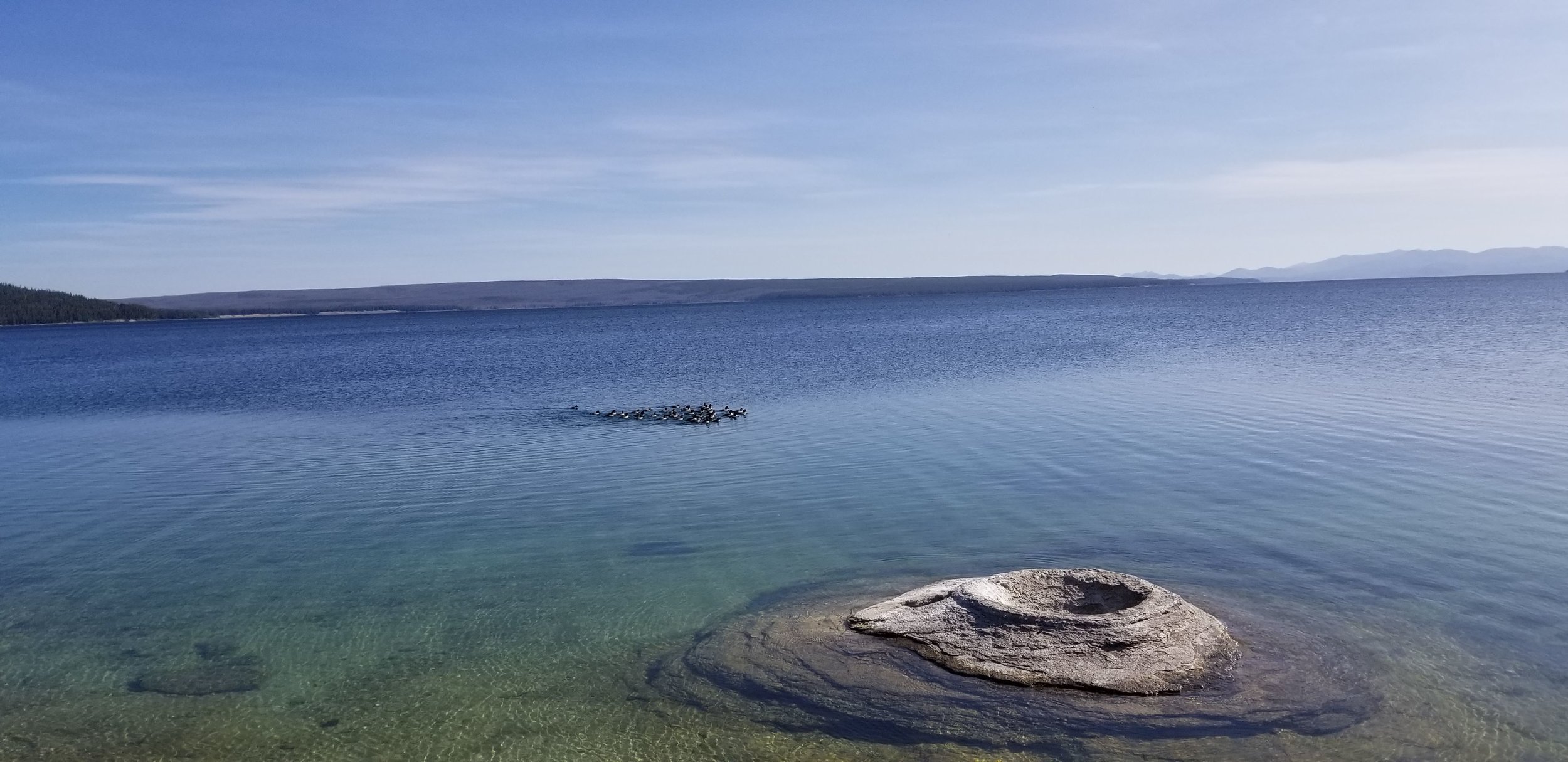
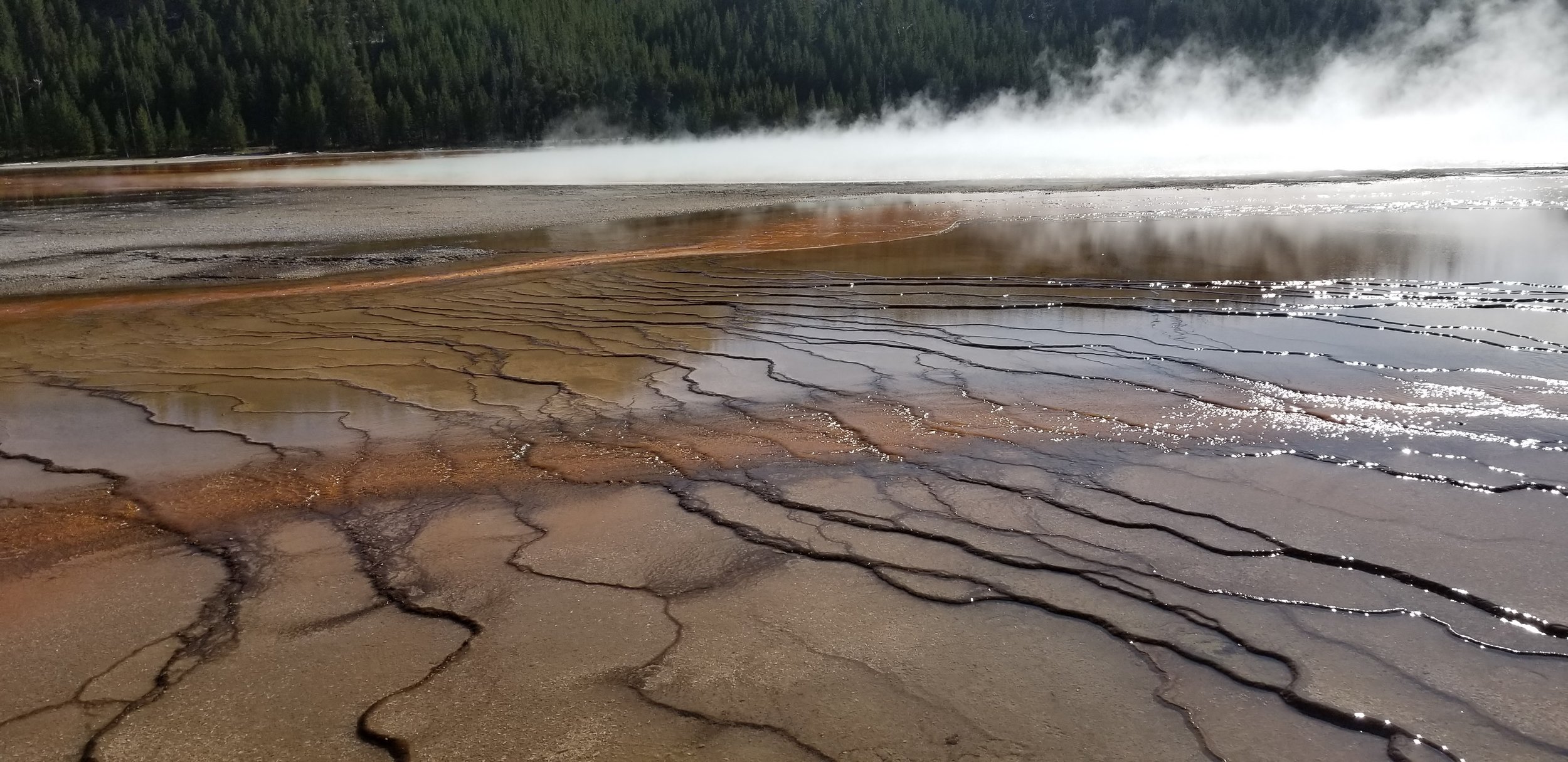
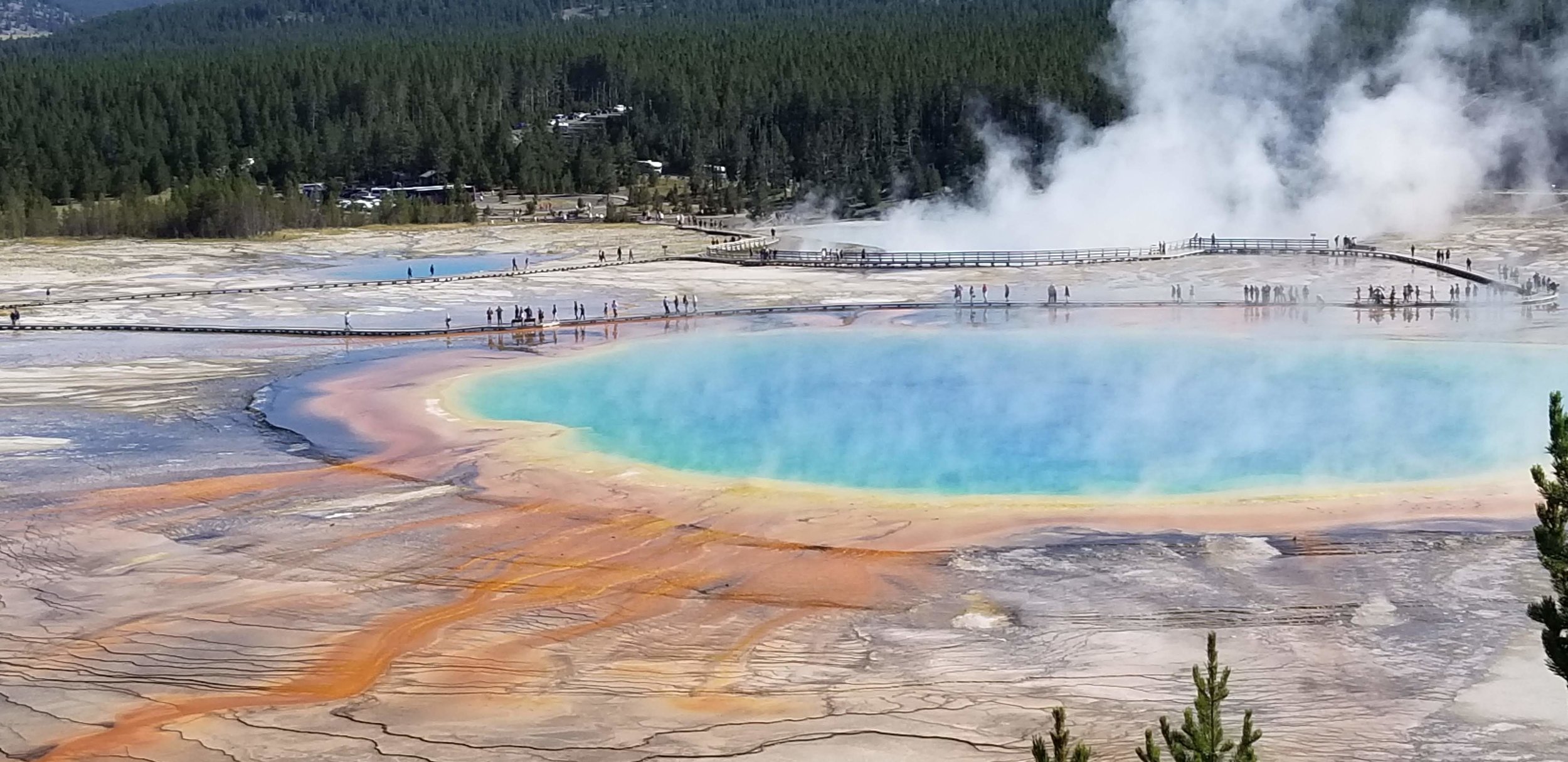
A phenomenal soul-refreshing trip out west to see nature’s wonders in Yellowstone National Park. Brightly colored and tantalizing geysers, exploding steam and smelling of sulphur, crossed our path. I got to see grizzly and black bears, and fields of bison across the landscape. Hope you get to visit.
On happiness and self-care
Working on climate change and behavior (both personal and political) is emotionally and intellectually challenging. Our community (and academia) rarely talks about self-care. It is so important, and I try to emphasize it for my team and myself as much as possible. Here is a picture of our lab mascot, Savannah, starting a 11-mile hike in McCormick's Creek State Park in Bloomington Indiana this past Saturday. This is what happiness looks like to me. What does it look like to you?
Resources Radio
Wonderful discussion with Daniel Raimi about our new paper on credibility and climate communication + a discussion of how stories can change us (my Andrew Carnegie Fellowship project on imagining the future to motivate action and policy support for climate change).
"Educating for Environmental Change" Teacher's Workshop
Joe and Deidra present our research on how people imagine the future energy mix in the U.S. at a hands-on workshop for 40 teachers from across Indiana from both elementary (K-6) and secondary (7-12) schools. Our work is funded by the National Science Foundation - Decision, Risk, and Management Science (DRMS).







